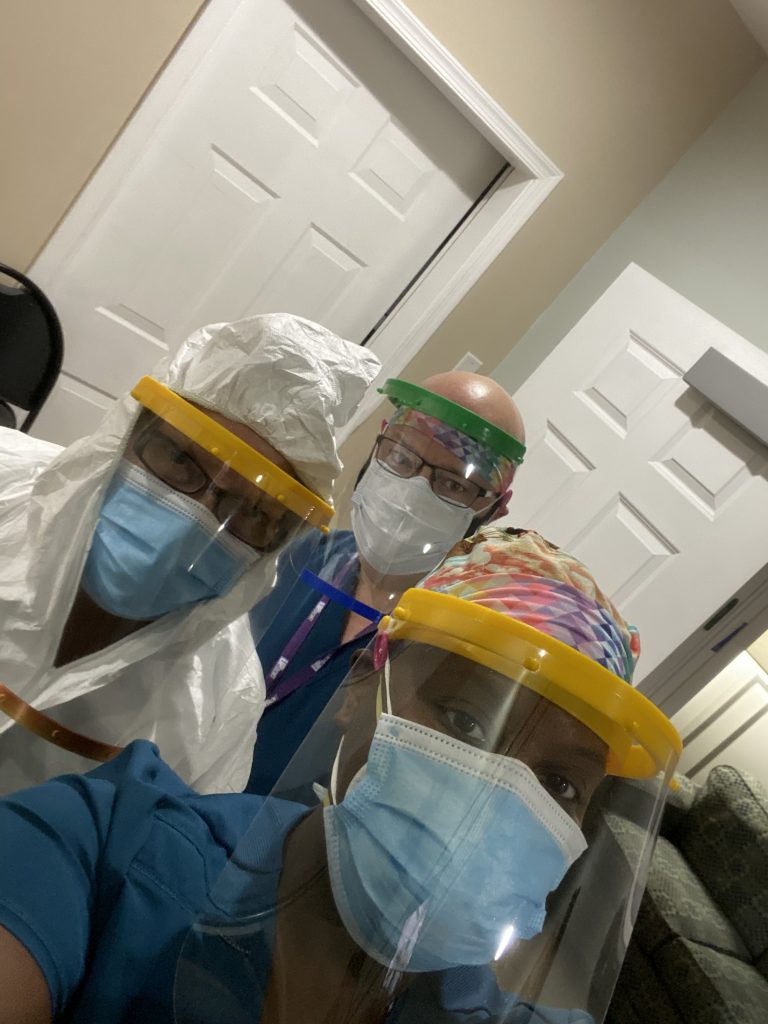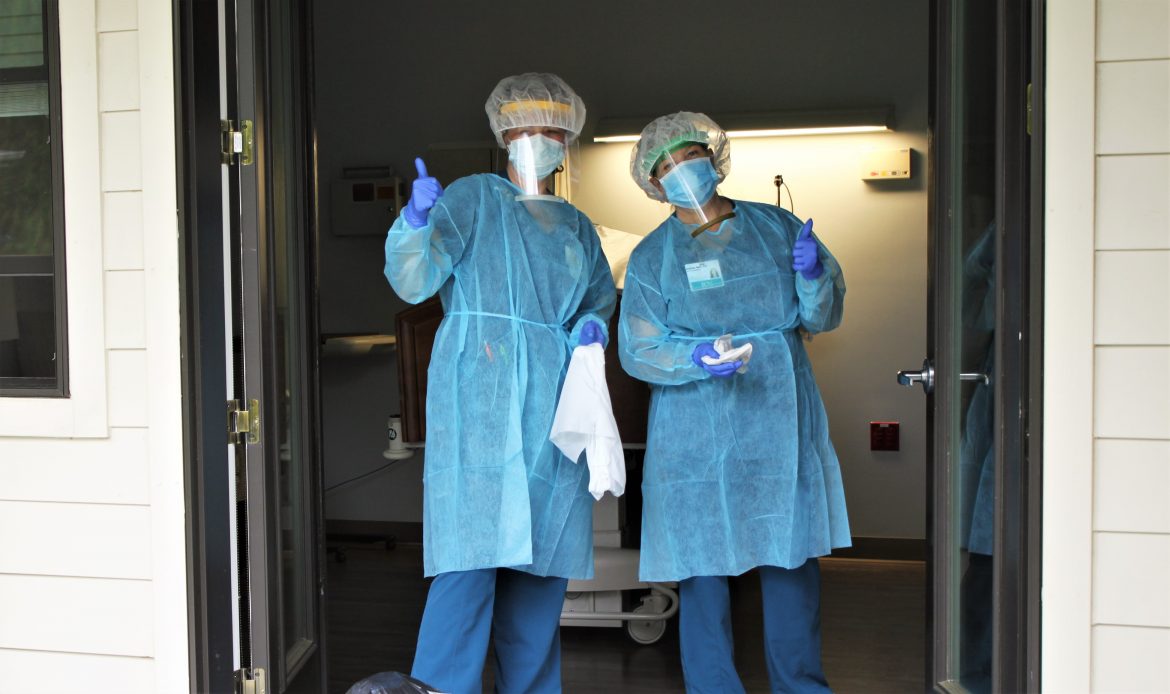
Members of Hospice of the Chesapeake clinical team don personal protective equipment before caring for patients at Mandrin Inpatient Care Center in Harwood, Maryland.
Before 2020, there was never a plan to dedicate several pages on the Hospice of the Chesapeake website to one disease.
Today, when you visit hospicechesapeake.org, the first graphic you see is a box linking to pages focused on our response to COVID-19. It is necessary, and just one of many ways we are keeping our community informed. We want to demonstrate that we always will find a way to stay focused on our mission of caring for life throughout the journey with illness and loss, even in the face of historic changes.
Once we understood how debilitating, if not fatal, this novel coronavirus could be for not only our patients, but their caregivers and other loved ones, the Hospice of the Chesapeake Emergency Preparedness Taskforce moved quickly to cancel events, meet remotely and work every avenue to secure personal protective equipment. That was only the beginning.
Chesapeake Life Center goes online
Every day brings new challenges for the taskforce to face: How could our grief support groups still meet? It was decided they would meet via telehealth: Chesapeake Life Center held its first support group via Zoom Health on April 4. Since then, all of its grief support groups have met virtually, and will continue to do so until it is safe to meet in person again. They even have been able to welcome people from out of the area.

Chesapeake Life Center Director Susan Coale talks with Community Education Manager Tammy Turner in one of several videos we have shared on social media and on our website to help people cope with COVID-19.
The center’s director, Susan Coale, is pleased with her team’s response to this new way of offering bereavement support. It is especially needed when increased feelings of anxiety, loneliness and depression can be expected in the face of so much change. “Grief can be even more acute when it is compounded with decreased social interaction, the cancelling of events that we were looking forward to and worrying about the health and safety of others as well as ourselves,” she said. “We know how important our services are to people who are already coping with the loss of a loved one.”
Face-to-Faceshield Visits
Telehealth also became the way chaplains and social workers provide support to our hospice and supportive care patients. It affords nurses, physicians, and nurse practitioners a way to check in on patients between face-to-face visits. Or, should we say face-to-faceshield visits: Storage rooms at all of our locations are filled with N95 and KN95 face masks, face shields, gowns, booties, gloves and caps.

Marianne Randon, CNA, and Jeanne Bell, RN, take a moment to wave hello while preparing a suite for a new patient at the Rebecca Fortney Inpatient Care Center in Pasadena, Maryland.
Windows of connection
As skilled nursing and assisted living centers struggled to contain the spread of the virus and were forced to limit who were allowed to enter their facilities, the care teams assigned to hospice and supportive care residents were faced with limited if any contact. Our referral partners were understandably working in an overabundance of caution and not allowing outside care teams, even when suited up head to foot in PPE. Again, the Hospice of the Chesapeake teams have stepped up to the challenge, making window visits when possible. When they are allowed to be with residents, they use mobile devices to connect them with the family who so desperately need to see their loved ones that this insidious virus has forbidden them to be near.
We are proud of how our teams have embraced the innovations such as telehealth in how we must now care for our patients and families. The taskforce’s job is not an easy one, but it is made easier by the many professionals who did not accept the word “cannot” and instead asked, “How can we?” Professionals like Allyson and Meredith, people we like to call “hospice heroes.”
The taskforce’s job is not an easy one, but it is made easier by the many professionals who did not accept the word “cannot” and instead asked, “How can we?”
We look forward to the day when we can update our COVID-19 webpages with information on where to find vaccines. Until then, we’ll continue to update those pages to let you know how your generosity has helped to fund the many new ways we need to care for our community.
Join the COVID-19 effort: To support our telehealth programs in providing virtual visits, grief support and counseling, please contact foundation@hospicechesapeake.org, visit www.hospicechesapeake.org/covid-19-response-fund or call 443-837-1527.


